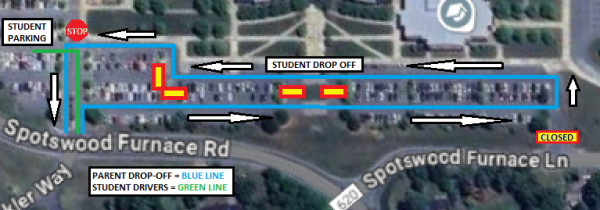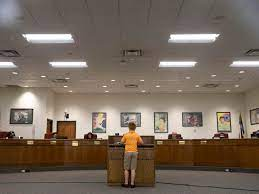Government Shutdown
The shutdown of the United States federal government was from January 20th, and ended on the evening of January 22nd.
Since 1980, the federal government has experienced 18 government shutdowns, with the latest one being in 2013. The cause of this year’s shutdown resulted in disputes over the amount of room in the budget for the Deferred Action for Childhood Arrivals (DACA) Program, the budget in general, and the overall inability to compromise on laws and legislation. If you would like to learn more about DACA, please see rhsaroundthebend.com for an article that explains in further detail.
Government shutdowns usually occur when Congress fails to pass or the president fails to sign appropriations: legislation funding government operations and agencies. Shutdowns can also happen when the President and one or both of the chambers of Congress are unable to resolve disagreements over budget allocations before the existing budget cycle ends. Many federal agencies still continued to operate during shutdowns such as Veterans Affairs, Social Security, Postal Service, Justice Department, and National Parks, which during the 2013 shutdown remained closed. Most national parks, recreation areas, and monuments stayed open during the shutdown, yet many rangers and staffers will be on duty.
However, just because these agencies have the ability to work, this does not necessarily mean they will get paid. Hundreds of thousands of federal workers are affected, including workers in the departments of Education, Commerce, Defense, Justice, Health and Human Services, and Transportation. Some workers who are deemed essential personnel will continue to work but, will not get paid, with those including from Social Security Administration and the Transportation Security Administration. Members of the military must also report for duty, although a prolonged shutdown could delay their pay. Yet, the ones who are unaffected due to the shutdown is congress and the president, they continue to be paid.
Father of sophomore Aspasia Sheppard, Marine stated, “Why should Americans have to deal with a shutdown’s fallout? There ought to be separate funding legislation per program, department, system, etc. The shutdown is leverage at the expense of the people for one party’s use to force another party to relent a disagreement.”
Bella Cox, 10th grader at Riverbend said, “The Government shutdown was unnecessary and it hurts our country. Not only do our government workers not get paid, but it shows the real divide in this country between the two parties and that they can’t work together. Some of these governments workers rely on every bit of pay they get, while the congressmen and women still continue to get paid. We are supposed to make compromises, however, people are too stubborn and freedy to set something as basic as a budget in place. We are a first world nation who act as a global police force and we try to install democracy after democracy in third world countries, while we cannot even make a budget without arguing to the point of shutting down the government.”
Government shutdowns are not a proper way to dissolve to disputes especially coming from different parties who have different views. When two different parties are actively trying to prevent anything from getting done, all because of the different views from the other party, the only people who are severely affected by this, are American people. Both congress and the president, who are the ones that led to the initial shutdown, have no repercussions and will continue to be paid. While government workers, service men, and usually anything that is funded by the federal government is automatically on hold until both parties decide to get their act together. Typically, shutdowns usually span from a couple of days, there has been occurrences where the shutdown has lasted for more than two weeks. The longest shutdown was 24 days from December 14, 1995 to January 6, 1996 when Bill Clinton was in office. During that time, workers were not paid and had no idea when the government would reopen. The government can be blamed for a number of things, but when the government gets shut down over trivial arguments, this is when the American government needs to evaluate its decisions on serving the people first, since this is supposed to be its number one priority.





